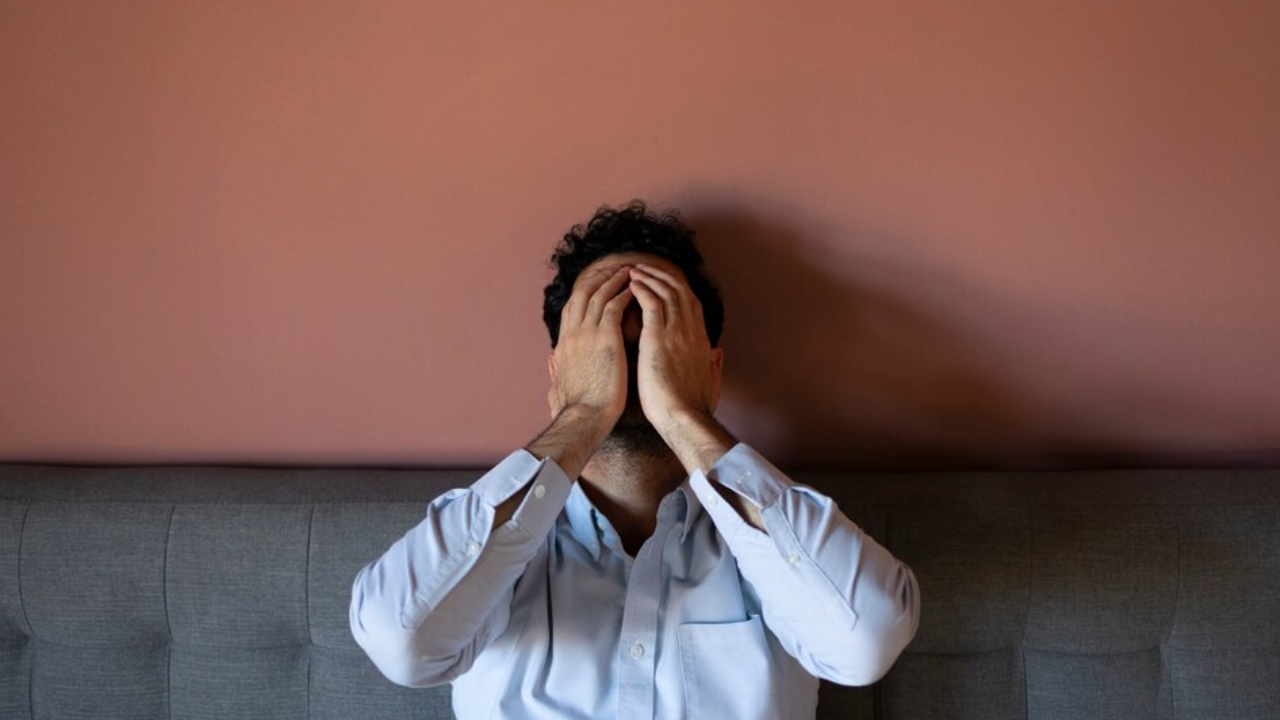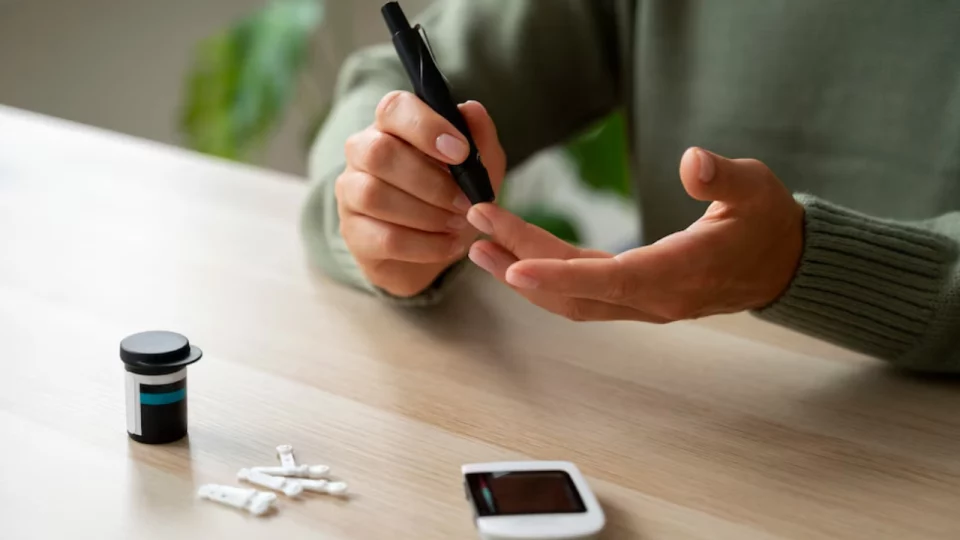Anxiety and low blood sugar—medically known as hypoglycemia—are two conditions that share some strikingly similar symptoms. From shaking hands and racing hearts to sweating and feelings of nervousness, it can be challenging to distinguish between the two.
For those who experience these symptoms, it’s crucial to recognize the underlying cause, as mistaking one condition for the other can lead to inadequate treatment and prolonged discomfort.
Table of Contents
Understanding Low Blood Sugar (Hypoglycemia)
Hypoglycemia occurs when blood glucose levels drop below a normal range, which can vary slightly among individuals. Glucose, a type of sugar derived from food, is the body’s primary source of energy. When glucose levels fall too low, it disrupts brain function and can affect other bodily processes. Generally, hypoglycemia is defined as blood glucose levels below 70 mg/dL (3.9 mmol/L), though symptoms can vary in severity and may appear even at higher levels for some people.
Common Causes of Hypoglycemia
- Skipping Meals: Without regular meals, blood sugar levels can drop, especially for those on insulin or certain diabetes medications.
- Physical Activity: Strenuous exercise can rapidly deplete glucose stores, particularly when not balanced with proper food intake.
- Alcohol: Alcohol can interfere with the liver’s ability to release glucose, potentially leading to hypoglycemia.
- Certain Medications: Diabetes medications, like insulin and sulfonylureas, can lower blood sugar. Other medications not typically associated with diabetes can also contribute to hypoglycemia.
Understanding Anxiety
Anxiety is a psychological condition characterized by excessive worry, fear, and nervousness. Unlike low blood sugar, anxiety is not primarily a physiological state but an emotional response. That said, it often brings about physical symptoms—sweating, palpitations, and trembling, to name a few—that overlap with hypoglycemia.
Common Causes of Anxiety
- Genetics: Some individuals are more predisposed to anxiety due to hereditary factors.
- Stressful Life Events: Major life changes or chronic stressors can contribute to anxiety.
- Brain Chemistry: Imbalances in neurotransmitters like serotonin, dopamine, and GABA can lead to anxiety disorders.
- Medical Conditions: Certain health conditions, such as hyperthyroidism or heart disease, can induce symptoms similar to anxiety.
Why Low Blood Sugar and Anxiety Are Often Confused
The confusion between low blood sugar and anxiety arises from their shared symptoms, which can make it difficult to determine which condition is causing the discomfort. For example, both can cause:
- Sweating: A common reaction in both hypoglycemia and anxiety due to the body’s response to perceived stress.
- Heart Palpitations: Increased heart rate can be a natural reaction to both low blood sugar and an anxiety attack.
- Shakiness or Trembling: This physical symptom can manifest in both conditions and feel equally unsettling.
- Dizziness: In both hypoglycemia and anxiety, dizziness is common and can lead to confusion or even fainting in severe cases.
Moreover, the relationship between blood sugar levels and anxiety can be cyclical. Low blood sugar can trigger symptoms that mimic anxiety, which can lead to feelings of genuine anxiety. Conversely, chronic anxiety can lead to changes in eating patterns, sleep disruptions, and other lifestyle factors that may contribute to blood sugar fluctuations. This intricate interplay makes it essential to understand the finer distinctions between the two conditions.

Key Differences Between Low Blood Sugar and Anxiety
While there are overlaps, there are also subtle differences between the two conditions. Understanding these differences can help you identify whether you are experiencing low blood sugar, anxiety, or a combination of both.
Timing and Circumstances
- Low Blood Sugar: Symptoms of hypoglycemia are often linked to timing, especially around meals. If symptoms tend to arise a few hours after eating or are alleviated shortly after having food, hypoglycemia might be the cause.
- Anxiety: Anxiety symptoms are often triggered by specific situations, thoughts, or stressors. If the symptoms appear during stressful times or persist without connection to meal timing, they may be more related to anxiety.
Duration of Symptoms
- Low Blood Sugar: Symptoms of hypoglycemia often improve quickly after consuming carbohydrates. Typically, within 10-15 minutes, symptoms may start to ease once blood glucose levels stabilize.
- Anxiety: Anxiety symptoms can last longer and might not respond as directly or immediately to food. The discomfort can persist until the stressful situation is resolved, or the individual engages in anxiety management techniques, such as deep breathing or mindfulness.
Hunger Sensation
- Low Blood Sugar: Hypoglycemia often brings a pronounced feeling of hunger, as the body signals the need for more glucose.
- Anxiety: While anxiety can occasionally cause cravings or suppress appetite, it doesn’t generally induce the same immediate, intense hunger associated with low blood sugar.
Symptoms Upon Waking
- Low Blood Sugar: If you wake up feeling dizzy, shaky, or sweating, this may be due to nocturnal hypoglycemia, especially in individuals with diabetes.
- Anxiety: Anxiety upon waking is often due to generalized stress or poor sleep rather than blood sugar fluctuations, though morning anxiety can affect blood sugar if it disrupts regular eating patterns.
How to Spot the Differences: Self-Assessment Tips
- Check the Timing: Note when symptoms occur relative to your last meal.
- Monitor the Effects of Food: Try having a small snack, such as fruit or juice, if you’re experiencing symptoms. If the symptoms improve, low blood sugar might be the culprit.
- Identify Triggers: Reflect on recent stressors. Anxiety-related symptoms are often linked to ongoing worries or stress.
- Test Blood Sugar Levels: If you have access to a glucometer, checking your blood sugar can provide immediate insight.
How to Manage Low Blood Sugar and Anxiety Separately
If you suspect you are dealing with low blood sugar, it’s crucial to address the immediate need for glucose and consider lifestyle changes to maintain stable blood sugar levels. On the other hand, if anxiety is the root of your symptoms, managing stress, therapy, and relaxation techniques may be more effective.
Managing Low Blood Sugar
- Follow the 15-15 Rule: If you experience hypoglycemia, consume 15 grams of a fast-acting carbohydrate (e.g., fruit juice, glucose tablets) and check your blood sugar 15 minutes later. Repeat if necessary.
- Eat Regularly: Consuming meals at regular intervals, balanced with proteins, fats, and carbs, can help prevent drastic blood sugar drops.
- Limit Alcohol: Reducing alcohol intake can prevent hypoglycemic episodes, as alcohol can interfere with glucose production.
- Discuss Medications with Your Doctor: For people with diabetes, certain medications might need adjustment to avoid frequent low blood sugar episodes.
Managing Anxiety
- Practice Mindfulness and Relaxation Techniques: Techniques such as deep breathing, progressive muscle relaxation, and meditation can help reduce anxiety symptoms.
- Maintain a Regular Sleep Schedule: Poor sleep can exacerbate anxiety symptoms. Aim for consistent sleep patterns.
- Limit Caffeine and Sugar: These can stimulate the nervous system, potentially worsening anxiety.
- Therapy and Counseling: Cognitive Behavioral Therapy (CBT) and other therapeutic approaches can provide tools to manage anxiety effectively.
- Medication (If Needed): Some individuals may benefit from medications prescribed by a doctor, such as anti-anxiety or antidepressant medications.
The Importance of Consulting a Healthcare Professional
If you’re unsure whether you’re experiencing low blood sugar, anxiety, or both, consulting a healthcare professional can provide clarity. Blood tests, discussions about your symptoms, and lifestyle evaluations can help determine the root cause. For individuals with diabetes, frequent hypoglycemia can indicate that medication or insulin doses need adjustment. For those struggling with anxiety, a mental health professional can offer coping strategies and recommend treatments that best suit your needs.
Can Low Blood Sugar Cause Anxiety?
Interestingly, low blood sugar itself can sometimes lead to feelings of anxiety. When blood glucose drops, the body releases stress hormones, such as adrenaline, which can trigger “fight or flight” responses similar to those experienced during anxiety. This physiological overlap adds to the confusion but also underlines the importance of recognizing low blood sugar as a possible source of anxiety-like symptoms.
In some cases, this can even lead to what is known as reactive hypoglycemia, where blood sugar spikes after eating and then drops, causing symptoms reminiscent of anxiety, such as shakiness and nervousness. Monitoring blood sugar after meals, particularly high-carb ones, can reveal whether such a pattern might be contributing to anxiety-like symptoms.
